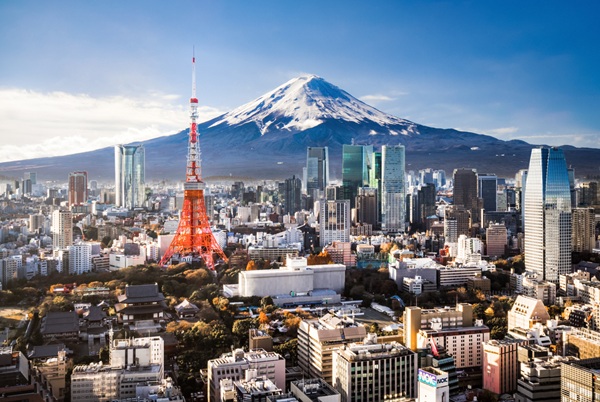.png)
Kalyani Srinath, a food curator at www.sizzlingtastebuds.com, is a curious learner and a keen observer of life.
November 8, 2025 at 8:15 AM IST
There’s a quiet pull to the idea of simply vanishing—not dramatically, not in despair, but with a kind of gentle grace, like mist dissolving as daylight spreads. To retreat from the unrelenting noise of life, from the stories we’re forced to inhabit.
In Japan, there’s a word for this: johatsu. It translates to “evaporation.” For thousands of Japanese people, it’s not a poetic metaphor but a lived reality—the decision to leave one’s life behind entirely. A life rewritten, not destroyed. They call in night movers who appear discreetly before dawn, pack up belongings without a trace, and deliver people into anonymity.
When I first heard the word johatsu, I assumed it was one of those curiosities amplified by the internet—a dramatic cultural phenomenon that exists more in headlines than in life. But johatsu has deep roots. It emerged decades ago, quietly shadowing Japan’s modernisation.
In the 1960s, economic and social pressures began shaping an ideal of perfection—the dutiful worker, loyal spouse, responsible citizen. When life fell short of those standards, failure wasn’t just personal; it was communal. Losing a job, a partner, or financial stability carried not only disappointment but humiliation. To vanish, in that context, was not only to escape shame—it was to find dignity again.
During Japan’s infamous “Lost Decade” of the 1990s, these disappearances surged as bankruptcy and unemployment mounted. Some left behind only a note or a spare key. Some told no one at all. By 2022, police reports listed close to 100,000 missing persons; many vanishers were believed to be voluntary.
What makes johatsu fascinating is that it exists within quiet acceptance. Police generally respect a person’s decision to disappear unless a crime is involved. There’s an unspoken cultural understanding: sometimes, leaving is a form of healing. It’s a small mercy extended in a society that values endurance.
But the yearning to disappear isn’t Japanese alone. It’s deeply human. Around the world, people fantasise about erasure—not out of hopelessness, but a desire to breathe freely again. Behind that fantasy lies a wish to pause life, to live privately for a while without expectation, without eyes watching.
In Seoul, some seek refuge in “runaway rooms.” In London or New York, they vanish into new cities under new names. The faces change; the impulse doesn’t. Perhaps in today’s hyperconnected, overexposed world, the idea of dissolving into stillness feels less like escape and more like restoration.
Letting Go
Psychologists call it identity disruption—the fracture that happens when one’s story no longer fits. Trauma, divorce, job loss, unbearable shame: any of these can strip away a person’s sense of belonging. When that happens, disappearance can become an act of survival.
For some, it’s about building distance between who they were and who they might still be. By leaving behind familiar pain, they reclaim control of what little autonomy remains. The vanishing itself becomes a language—a statement of refusal.
And yet, every disappearance echoes through those left behind. Families and friends face a haunting silence psychologists call ambiguous loss. It’s a grief without closure, a wound without a tomb. Birthdays go unacknowledged; phone screens await names that never reappear. It’s absence braided with hope—the peculiar ache of believing someone might still return.
Even so, many of those left behind admit to understanding it, at least in part. Because who hasn’t felt that tug at least once—the urge to just walk away from heavy expectations and start from nothing?
Living in constant visibility makes this longing more pronounced. The modern world leaves few shadows to hide in. Every moment is archived, every feeling judged. In that light, johatsu becomes both rebellion and renewal. It’s the refusal to be trapped inside a version of life that feels unreal.
To vanish physically is extreme, but all of us perform smaller disappearances throughout our lives. We delete old profiles, abandon old friendships, move cities, shed jobs, leave relationships that once defined us. These are our minor johatsus—acts of quiet reinvention disguised as ordinary change. Each time, we erase a piece that no longer fits and begin again.
The impulse is not self-destruction; it’s self-preservation. Johatsu reveals that the need to escape doesn’t make us broken—it makes us human.
Those who successfully rebuild after vanishing often describe an unexpected peace. Freed from the pressure of perfection, life becomes slower, smaller, more sincere. Days unfold anonymously; no one asks where they came from. In that ordinariness lies the gift of starting over.
Sociologists and psychologists both note that recovery in such cases often depends on simple reconnection—with community, work, or a new sense of purpose. Even new identities need belonging. It’s within those fragile networks that johatsu transforms from exile to renewal.
French journalist Léna Mauger, who spent years researching Japan’s “evaporated,” describes johatsu as something not sinister but tender. It is rooted, she wrote, in shame but also in hope—the human right to reclaim one’s story when everything collapses. Estimates suggest tens of thousands still vanish in Japan each year. They slip quietly into spaces where anonymity blooms, hidden among the rest of us who, in smaller ways, wish we could do the same.
Because the truth is, at some point, most of us long to disappear. Not forever, not with cruelty, but with yearning for stillness. We imagine stepping outside the lives we’ve curated, the roles that tire us, the noise that never fades. In that imagined silence, perhaps we find a version of ourselves that feels whole again.
Johatsu invites reflection, not judgment. It asks what freedom really means. Is it found in escaping our identities altogether, or in the courage to reshape them in daylight? Perhaps the real challenge isn’t to vanish, but to live visibly while shedding the weight of performance—the unnecessary expectations and obligations that drown us quietly.
For the ordinary person haunted by exhaustion, this idea flickers like a secret wish: to start again without the past tugging at one’s sleeve. A wish to dissolve—not from life, but into it more fully, without pretence, without apology.
Disappearing, then, isn’t only a mystery about those who leave. It’s a mirror for those who stay. It reminds us that beneath our routines lies a fragile desire to begin anew—to lighten the load, to choose quiet, to be free from what no longer feels true.
Johatsu is rarely about escape; it’s about mercy.
A mercy we extend to ourselves when the noise becomes too much. A mercy we all need, at least once in our lives.




